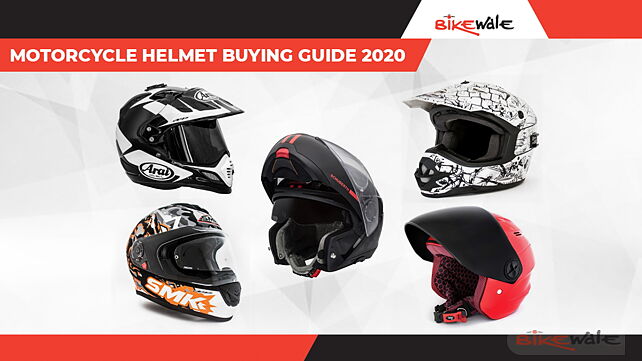
Introduction
As motorcycles – and motorcycling in particular – mature, it gives birth to niches and genres. These genres then give birth to tailor-made riding gear best suited to that particular category. And though it might all sound lovely, it can confuse us, the motorcyclists.
So, to make things simple, we will run a series of buying guides to help you pick the right gear for the right kind of motorcycling. Yes, for the right kind of motorcycling and not motorcycle. Because as it turns out, you can go off-roading on a scooter, and go grocery shopping on an ADV.
This one is your motorcycle helmet buying guide.
We have split the helmets into five broad categories, and we will tell you the pros and the cons of each of these helmets, and of course, what sort of ‘motorcycling’ these would be best suited to…

Open Face Helmet
Pros: An open face helmet is one the lightest, most airy helmets one can buy thanks to the lack of a jaw and a proper visor. Its shape also makes for fantastic visibility be it upfront, peripheral or looking down to zip up your jacket or pulling something out of your tank bag. And on a retro classic, it looks cool as well!
Cons: Since it doesn’t have a jaw line, it also won’t save your jaw (maybe quite a bit of the face as well) in an event of a serious crash. And not having a proper visor means, no wind / spit / fly / soot protection for your eye or face or even teeth in some cases. And because it is so open, it also gets pretty noisy inside the helmet.
When to wear: Ideally on a scooter or a retro classic, and especially if you are not doing over 60kmph. Put it on for the grocery run or to college if it’s close by, and then stow it under the seat of your scooter, or lug it around in your backpack.

Full Face Helmet
Pros: Unlike the open face, if you pick a good design for a full-face helmet (of which there are plenty), it looks good on everything. Yes, even on a scooter. Plus, there’s so much more protection on offer. From the elements to the ugly exhaust smoke of an ill maintained bus, a full face keeps your head and the pretty bits well cocooned and safe. There’s also good wind protection when riding at speed, and it is a lot quieter than your half face piece for sure. But, its biggest plus as we mentioned at the start, is its versatility. Wear it with anything, and it goes; like a pair of blue denims.
Cons: It is more expensive to begin with. It’s also heavier and more cumbersome to haul around than a half face helmet. It can also get uncomfortable on a hot, humid day, especially when riding in bumper-to-bumper traffic. And with the visor, one has to be very careful. Because if you scratch it, riding at night can be a nightmare with the oncoming lights completely blinding you.
When to wear: Whenever you choose. On whatever two-wheeler you might be riding. You can wear it for the grocery run, to commute to work, for the weekend ride to the hills, and even to ride to Timbuktu. In fact, I have used one even to ride on dirt. Just flip up the visor, and you are ready! Now, the half face helmet can only be your secondary piece. But the full face can be your primary helmet (if you choose to have more than one), and it could also be your only helmet. Again, something we can’t say about the half face helmet.

Modular Helmet
Pros: It’s the jack-of-all-trades kind of a helmet. It is a full-face helmet that can also turn into an open face one. And that brings with it convenience and versatility. There’s protection of a full-face helmet on those long and fast rides, and the airiness and ventilation of an open face when the going gets hot or slow. If you could only buy one helmet, but ventured into all kinds of motorcycling, the modular helmet would be a default buy.
Cons: The mechanism that makes it such a versatile helmet also makes the modular helmet a heavy one. If you were to pick the same make, chances are its modular range will be the heaviest. And that for some could bring added fatigue and even restrictions related to head movement. And of course, a jack of all trade the modular helmet might be, but it scores quite low on the desirability scale.
When to wear: If the full-face helmet is your wear-it-on-anything hack, a modular helmet is the wear-it-for-all-motorcycling key. It’s ideal for touring. But lift up the jaw, and it becomes an open face helmet. Lift up the visor and like the full face, you are ready to tackle some trails. Drop the jaw and the visor, and it turns into your wear-it-on-anything hero – commute, tour, or even the grocery run. But I would avoid a track outing with it.

Dirt or Motocross Helmet
Pros: Like the open face, if you choose well, Dirt or Motocross helmets are generally lighter than the likes of a full face or a modular. And without a set of glasses and an OTG motocross goggle, the visibility is fantastic too. Even with the goggles, it is so easy to just remove and pack them away that if the need ever arises for improved visibility, it can be achieved within seconds with a dirt helmet. Ventilation is another big plus. As is breathability. Some say riding off-road is akin to working out, and so being able to breath properly becomes key. A dirt helmet also offers fantastic jaw protection and thanks to the peak, it’s a good shield against roost as well!
Cons: Dirt helmets are just too focused. And that means functionality and performance take precedence over comfort. These are also very noisy courtesy the high level of ventilation. But, these are quite useless for everything but riding off-road. On the road, like we said, these get noisy. These aren’t comfortable to spend long hours in either. And they catch a lot of wind, especially when riding on highways.
When to wear: Every time you ride off-road. And the moment you switch from any other helmet type to a dirt helmet when riding trails or pulling figures of eight on dirt, you can immediately tell the difference. You are better ventilated, you are breathing better, and as a result you end up riding for longer. You can also wear the dirt helmet for a short commute to an off-road riding location. But much like riding on knobby tyres, you better take it easy.

ADV or Adventure Helmet
Pros: It’s better than a dirt helmet for road use. And it is pretty handy off-road too. The visor can come off to accommodate MX goggles and it has a peak to keep the roost at bay. Like the dirt helmet, it scores high on visibility, breathability, and ventilation. But, an ADV helmet is more comfortable than one meant for dirt.
Cons: It’s heavy. And it’s a compromise at the end of the day. It’s not as comfortable or aerodynamic as a proper full-face helmet, so on the highway, it does catch wind. It’s also not as light and focused as a dirt helmet and that makes riding long hours off-road a chore with an ADV helmet. It’s also cumbersome to lug around. And unlike a full face or a dirt helmet, it’s more fragile given it has removable exterior parts like the peak and the visor.
When to wear:
Though like most helmet types, you can wear the ADV helmet on everything from a bicycle to a go-around-the-world ADV, it’s best when you use it only on the latter. For starters, it looks odd on anything but an ADV. And unless you have good wind protection courtesy your motorcycle’s visor, these helmets can prove to be quite a pain when touring at three digit speeds.


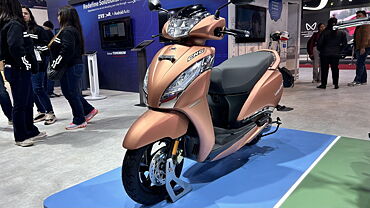
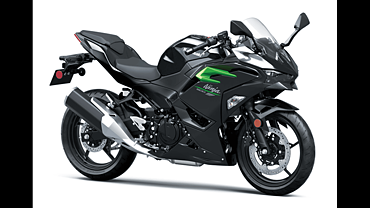
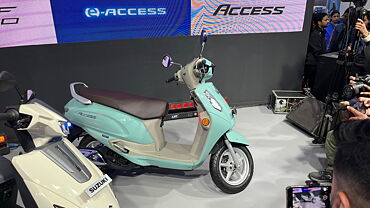
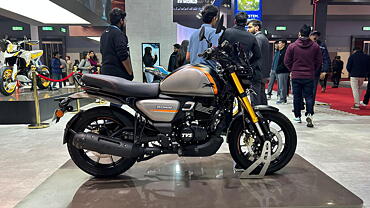


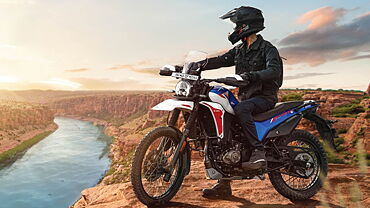
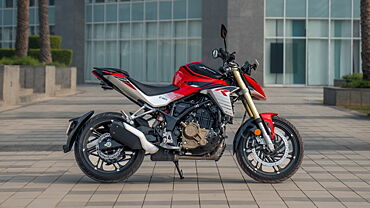
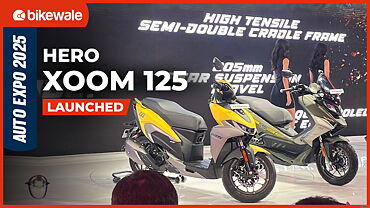




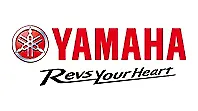

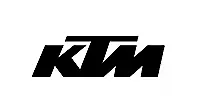


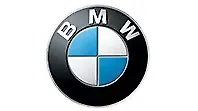
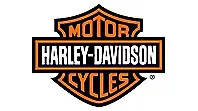












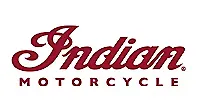







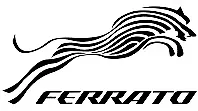
























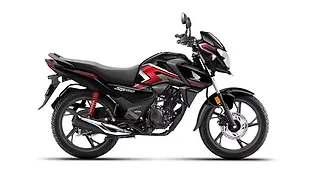


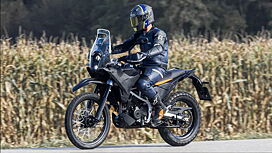
![KTM 390 Adventure X [2025] KTM 390 Adventure X [2025]](https://imgd.aeplcdn.com/272x153/n/cw/ec/190885/390-adventure-x-2025-right-side-view.jpeg?isig=0&q=80)